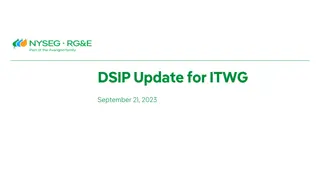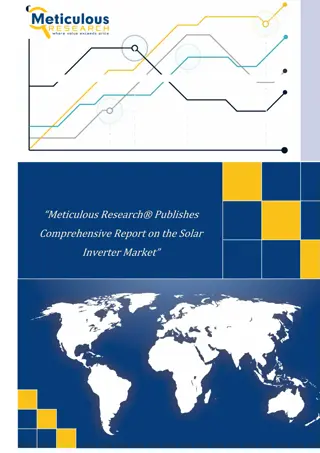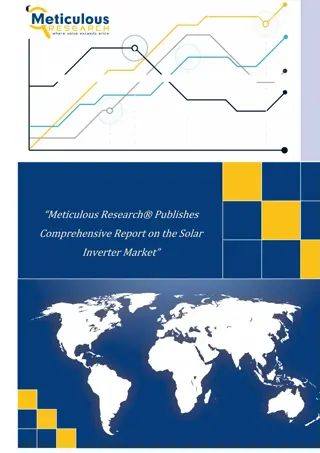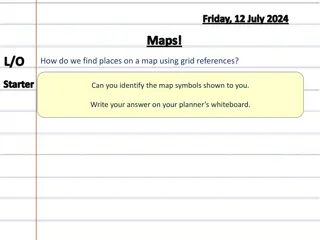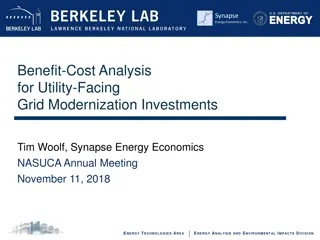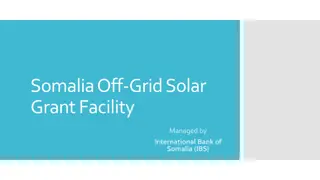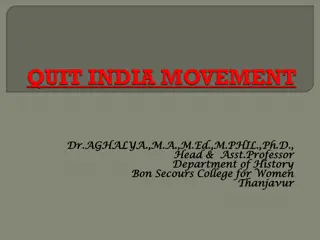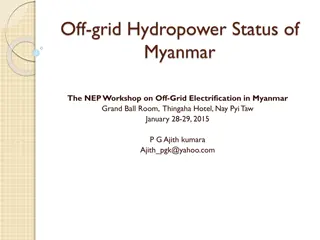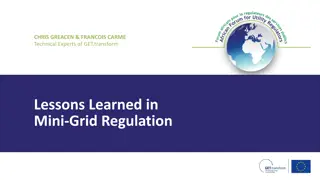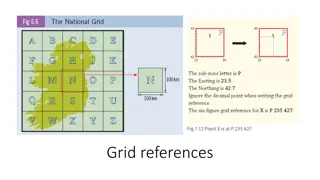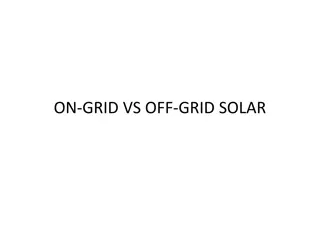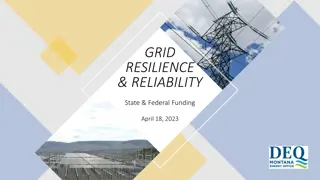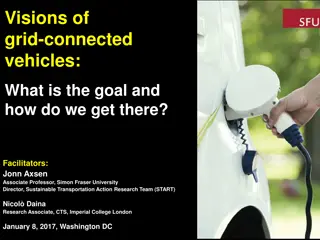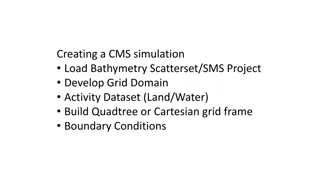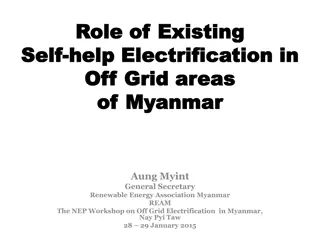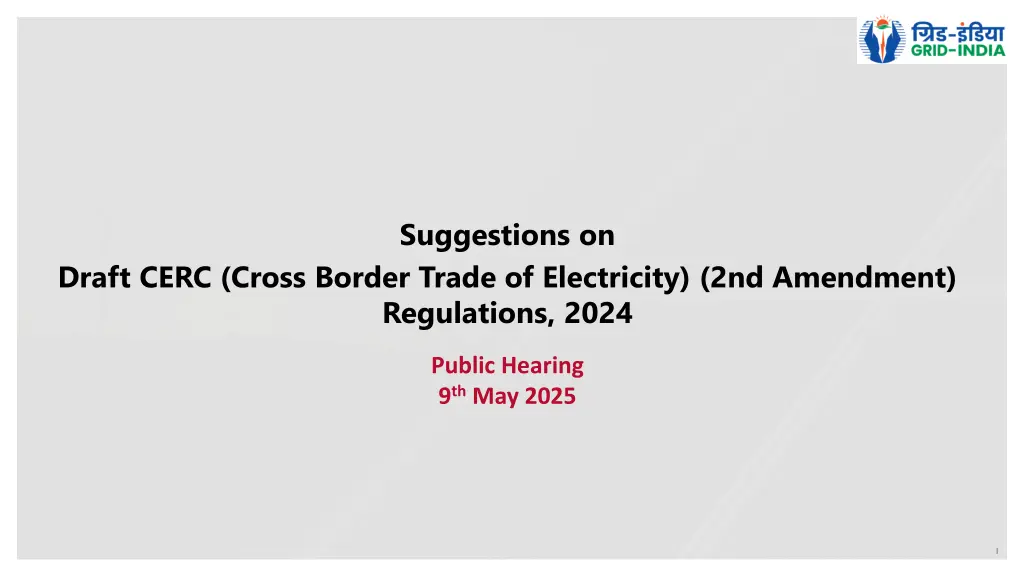
Suggestions for Enhanced Implementation of CERC Cross-Border Electricity Trade Regulations
Emphasizing the need for clarity in implementation, reimbursement of transmission charges, identification of cross-border entities as buyers/sellers, nodal agency for SOP formation, and designated authority for YTC determination in the amended CERC regulations of 2024. The suggestions aim to streamline the process and address ambiguities for efficient cross-border electricity trade.
Download Presentation

Please find below an Image/Link to download the presentation.
The content on the website is provided AS IS for your information and personal use only. It may not be sold, licensed, or shared on other websites without obtaining consent from the author. If you encounter any issues during the download, it is possible that the publisher has removed the file from their server.
You are allowed to download the files provided on this website for personal or commercial use, subject to the condition that they are used lawfully. All files are the property of their respective owners.
The content on the website is provided AS IS for your information and personal use only. It may not be sold, licensed, or shared on other websites without obtaining consent from the author.
E N D
Presentation Transcript
Suggestions on Draft CERC (Cross Border Trade of Electricity) (2nd Amendment) Regulations, 2024 Public Hearing 9th May 2025 1
1. Clarity in Implementation of Cross Border Transmission Link between neighbouring Countries: The amended Clause 7.2.(2-i) states that A participating entity having a generating station or a drawl facility located in one country may develop, operate, and maintain the dedicated transmission system from their generating station or drawl facility to the pooling station of a neigbouring country at its own cost after obtaining all the necessary approvals from respective countries: . Clarity is required that whether the above stated dedicated transmission system between the two countries will be connected to the Indian Power System. 2. Reimbursement of transmission charges recovered from generator or transmission licensee: The amended proviso (b) of Clause 14.3 states that in case of delay in achieving COD of generating station or unit(s) thereof and associated dedicated transmission system in the neighbouring country beyond the scheduled date, the generator or the trading licensee which has obtained GNA for the purpose of injection into the Indian Grid shall be liable to pay the transmission charges at 2% of T-GNA rate for the State where injection point is located in Indian Grid. It is suggested that the collected transmission charges shall be reimbursed to the drawee DICs in proportion to their share in the first bill in the following billing month 2
3. Clarity in identification of Cross-Border Enity as a Buyer/Seller: The amended clause 14.5 of principal regulation states that The charges for deviation from schedule at the inter-connection point shall be as per the charges for the general seller and buyer under the DSM Regulations in India for injecting and buying entities. Presently, for Nepal, Bhutan and Bangladesh, schedule and DSM are calculated on net country basis. Nepal and Bhutan import power from India during the winter months and export power to India for rest of the period in the year. Therefore, Nepal and Bhutan, will be sometime become buyer and sometime become seller in a year. Thus, the net position of these cross border countries may change as a buyer or seller from time to time. However, As per Regulation 8(14) of DSM Regulations 2024, the Indian states, irrespective of their net schedule position (i.e. drawal or injection) at the state periphery, are always considered as buyers for DSM computation. Hence, it is requested to provide clarity on - whether the cross-border countries can be considered as buyer during the import period and as a general seller during the export period, or they will be always considered as buyer(s), as being done for Indian States, as per provision in clause 8.14 of DSM 2024 Regulation. 3
4. Nodal Agency for formation of SOP under Annexure I: Point no. (o) of Annexure I of the draft regulation states that (o)The mode of operation of the dedicated transmission system connecting to the Indian Grid shall be as per the Standard Operating Procedure (SOP) issued in this regard. . It is requested to add suitable provision to nominate a responsible nodal entity for formulation of the said SOP along with timelines for submission of SOP to Hon ble Commission for approval. 5. Designated Authority for determination of YTC under Annexure 2: The Annexure II - S. No. (a-ii) & S. No. (b) of the draft regulation talks about the recovery of transmission charges for the use on Indian portion of the CBTL (Cross Border Transmission Link). Presently, as per data shared by CTUIL, most of the cross-border transmission lines are considered in the Indian transmission charge sharing pool. Hence, it is requested to clarify, whether those lines are to be excluded from the ISTS transmission charge pool after the enactment of this amendment. 4
6. Clarity on recovery of transmission charges of Cross Border Transmission link (CBTL): The Annexure II - S. No. (a-ii) & S. No. (b-iii) of the draft regulation talks about the determination of YTC (of CBTL) corresponding to the capacity under open access and a per unit rate considering the capacity under open access by dividing prorated YTC by the anticipated yearly energy transaction over the link, for the capacity under open access. Such anticipated yearly energy transactions shall be determined by the Designated Authority. It is suggested to add a provision that CTUIL shall be the nodal agency for determination of such charges and recovery thereof in consultation with the Designated Authority. 7. Clarity in determination of transmission charges for project under RTM mode: The amended Clause 5 of principal regulation states that In the event of delay by the transmission licensee in commissioning of the transmission system within India beyond its scheduled date and the generating company is ready with its generating station or unit(s), the transmission licensee shall pay transmission charges (which such transmission licensee would have received after achieving COD) to generating company or the trading licensee on behalf of such generating company........ . The transmission charges for the transmission project under TBCB mode is available whereas for the projects under RTM (Regulatory Tariff Mechanism mode) mode it will be challenging to calculate the charges for a transmission system that has not achieved COD. Therefore, it is proposed to include a provision for some indicative charges in the Regulation for RTM based projects for transmission lines. 5
8. Clarity on CBTL Link-Wise Identification of Entity Responsible for Over-Injection or Over-Drawal: 1. The Annexure II - S. No. (a-vi) and S. No. (b-vii) of the draft regulation talks about the sharing of over-recovered transmission charges of CBTL (recovery of transmission charges for the use on Indian portion of the CBTL (Cross Border Transmission Link) on per unit rate basis. The per unit rate shall be payable by the: a. Participating entity drawing power through the CBTL based on scheduled drawal. b. Participating entity injecting power into the Indian grid under collective transactions at Indian Power exchanges using such CBTL shall also pay transmission charges for such CBTL at per unit rate as determined under sub-clause (ii) of this Clause It is suggested that the CTUIL may raise the bill for the scheduled drawal of power through the CBTL. In case, the cross border entity is transacting through collective transactions, power is drawn through multiple cross border links on a net country basis. Therefore, determining charges for a CBTL for such transactions may not be feasible. Necessary provisions may be incorporated in the regulations to factor energy scheduled under collective transactions. 2. Annexure II S. No. (a-iv), (a-v), (b-v), and (b-vi) of the draft regulation restricts the entity for over-drawal or over-injection beyond the approved access quantum. However, for cross border transactions, scheduling and accounting is done on net country basis and not on link-wise. Hence, cross border link wise charge determination may not be feasible. Hence, it is requested to modify the provisions accordingly. 6
9. Considering Indian Entities only for Application for grant of T-GNA to the Indian grid: The Clause 11 of the principal regulation states that The Application for grant of T-GNA to the Indian grid by a Participating entity located in the neighbouring Country or by an electricity trading licensee of India, for the purpose of injection into the Indian grid or drawal from the Indian grid, for cross border trade of electricity............. It is suggested to consider that the TGNA applicant shall be an Indian entity only. If a TGNA applicant is a foreign entity, there will be difficulty in dealing on the part of nodal agency (NLDC) due to involvement of foreign bank account and foreign currency for transactions such as refund or receipt of TGNA charges to/from the Applicant. SNA can be entrusted the responsibility for applying for TGNA on behalf of participating entity located in the neighbouring Country. 7
10. Sharing of over recovered transmission charges of CBTL between its Entities: The Annexure II - S. No. (a-vi) and S. No. (b-vii) of the draft regulation talks about the sharing of over-recovered transmission charges of CBTL (for the capacity under open access) .......... the same shall be shared in the ratio of 20:80 between the owner of CBTL and entities who scheduled drawl through the CBTL. Through cross border links both injection and drawal schedule is done. When power is imported from neighbouring country drawal schedule is prepared for Indian entities. Further, when power is exported to neighbouring country drawal schedule is prepared for cross border entities. The 80% benefit of over recovery of transmission charges above the approved tariff shall be shared by entities who scheduled drawl through the CBTL. As per above, the benefit will be shared by cross border entities and Indian entities both. However, as per the Regulation the transmission charge of CBTL will be paid by cross border entities only. Thus, it is suggested that the Clause (b-vii) of Annexure II provision may be suitably modified so that benefit shall be shared with the entities who are paying transmission charge of the CBTL 8


